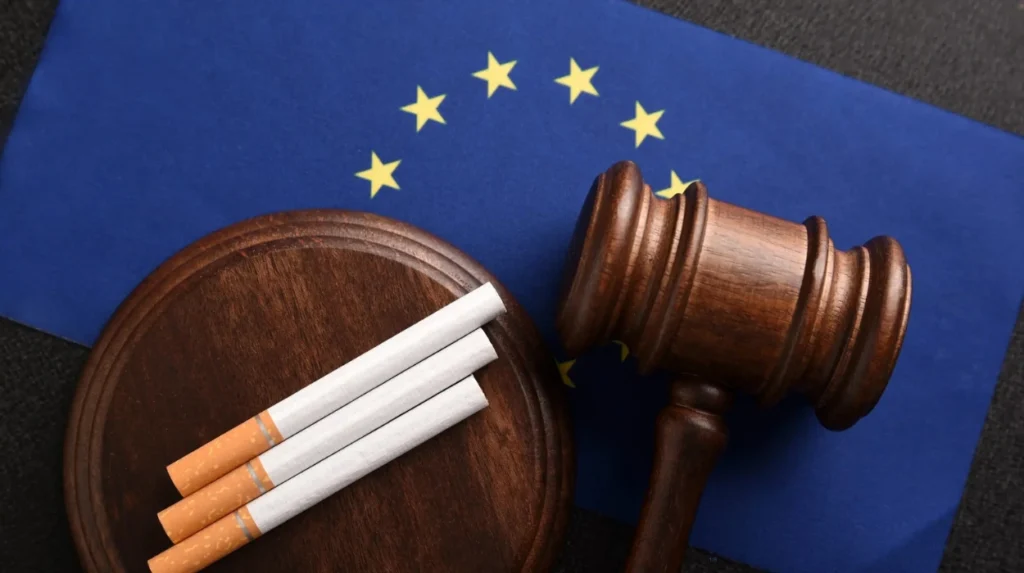The European Union’s proposed tobacco ban in Brussels has sparked a heated debate, with some voices warning that the measure could inadvertently fuel illegal immigration. This controversial claim has brought renewed attention to the complex intersection of public health policies, economic interests, and migration dynamics within the EU. As the EU pushes forward with stricter tobacco regulations aimed at protecting public health, critics argue that these policies may have unintended social and economic consequences, including driving illicit cross-border activities and increasing irregular migration flows.
The EU’s Tobacco Ban: A Public Health Priority
The European Union has long been at the forefront of tobacco control, implementing stringent regulations to reduce smoking rates and protect citizens from tobacco-related harms. The proposed tobacco ban in Brussels, which includes restrictions on tobacco sales and advertising, is part of a broader strategy to curb tobacco consumption and promote healthier lifestyles across member states.
EU health officials emphasize that tobacco remains one of the leading causes of preventable deaths in Europe, contributing to millions of premature deaths annually. The ban aims to reduce smoking prevalence, particularly among young people, and to limit the influence of tobacco companies on consumers. This aligns with the EU’s commitment to the World Health Organization’s Framework Convention on Tobacco Control and its own ambitious public health goals.
Lobbying Efforts and Industry Pushback
However, the tobacco ban has faced fierce opposition from the tobacco industry and its lobbyists, who have intensified their efforts in Brussels to influence policy outcomes. Reports reveal that tobacco lobbyists have increased their presence in the European Parliament, particularly targeting far-right groups and other sympathetic lawmakers to weaken tobacco control measures.
Organizations such as Corporate Europe Observatory and the European Public Health Alliance have documented extensive lobbying activities by tobacco companies, including attempts to delay legislation, dilute restrictions, and promote misleading research. These efforts aim to protect industry profits and maintain market access, often at the expense of public health objectives.
The tobacco industry’s tactics have included engaging with multiple Directorates-General of the European Commission, exerting pressure on policymakers, and fostering alliances with certain member states that favor less restrictive approaches. This lobbying has contributed to watered-down proposals and postponed regulations, complicating the EU’s efforts to implement effective tobacco control.
Linking Tobacco Ban to Illegal Immigration Concerns
Amid this contentious policy environment, some commentators and stakeholders have raised concerns that the tobacco ban could have unintended consequences beyond public health. One particularly contentious argument is that stricter tobacco regulations in Brussels and other parts of the EU might inadvertently fuel illegal immigration.
The reasoning behind this claim is that bans and heavy restrictions on tobacco products could drive consumers to seek cheaper, unregulated tobacco from outside the EU, often through illicit channels. This black market trade may be linked to smuggling networks that exploit porous borders and irregular migration routes. Critics argue that increased demand for illicit tobacco products could strengthen these criminal networks, which also facilitate illegal immigration.
While this argument remains debated, it highlights the complex and sometimes unforeseen social dynamics that can arise from regulatory policies. It also underscores the need for comprehensive approaches that address not only public health but also border security, law enforcement, and migration management in tandem.
Public and Political Reactions
The tobacco ban and its alleged link to illegal immigration have elicited mixed reactions across the EU. Public health advocates stress that the primary focus must remain on reducing tobacco-related harm and that fears about immigration should not derail evidence-based health policies.
Conversely, some political figures and interest groups have seized on the immigration argument to challenge the ban, framing it as an example of overregulation with negative social consequences. They warn that policies perceived as restrictive or punitive may alienate certain populations and exacerbate social tensions.
Health ministers from several EU countries have called on the European Commission to strengthen anti-tobacco measures, emphasizing the growing use of new nicotine products and the need for updated legislation. At the same time, they acknowledge the importance of addressing illicit trade and its broader implications, including links to organized crime and migration.
The Broader Context of EU Lobbying and Policy Making
The controversy surrounding the tobacco ban illustrates the broader challenges the EU faces in balancing public health priorities with economic interests and social realities. Tobacco lobbying remains one of the most powerful forces in Brussels, shaping policy debates and outcomes through well-funded campaigns and strategic alliances.
This dynamic complicates the EU’s policymaking process, as legislators must navigate competing pressures from industry, public health advocates, member states, and civil society. The interplay between lobbying efforts and political considerations often results in compromises that may weaken the effectiveness of proposed regulations.
Moreover, the discussion about illegal immigration linked to tobacco restrictions reflects how single-issue policies can intersect with wider societal concerns. It highlights the importance of integrated policy approaches that consider cross-sectoral impacts and seek to mitigate unintended consequences.
As the EU moves forward with its tobacco control agenda, it faces the challenge of ensuring that public health gains are not undermined by illicit trade or social backlash. Effective enforcement against smuggling and black market activities will be essential to complement regulatory measures and protect both consumers and border security.
At the same time, transparent and inclusive policymaking processes can help build public trust and address concerns about social impacts. Engaging with diverse stakeholders—including health experts, law enforcement, migration authorities, and affected communities—will be crucial to designing policies that are both effective and socially equitable.
The debate over Brussels’ tobacco ban and its potential links to illegal immigration serves as a reminder that policy decisions often have ripple effects beyond their immediate goals. It calls for vigilance, adaptability, and coordination across sectors to navigate the complex realities of governance in the European Union.







